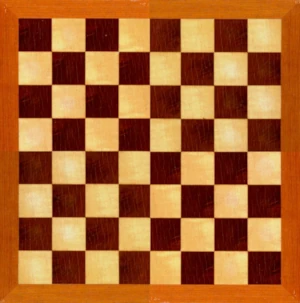
Three-Check Shatranj
Three-Check Chess, also known as Three-Check Shatranj, is a chess variant that is played with the goal of giving check to the opponent’s king three times, rather than the traditional goal of checkmating the opponent’s king. It is a fast-paced and exciting variation that adds a new level of strategy to the classic game of chess.
How to play Three-Check Chess?
To play Three-Check Chess, the setup is the same as traditional chess. The pieces are placed on the board in the standard positions and the players decide who will move first. The game is played with the standard chess rules, with the exception that a player wins the game by giving check to the opponent’s king three times. A player can also win by checkmating the opponent’s king, but this is considered a secondary goal.
Key Strategies in Three-Check Chess
-
Control the center of the board. By controlling the center, a player can create more opportunities to give check to the opponent’s king. It is also important to protect one’s own king, as giving check to the opponent’s king can also put one’s own king in danger.
-
Be aggressive and take advantage of any weaknesses in the opponent’s position. This can be done by attacking their pieces and forcing them to move into less favorable positions. By doing this, a player can create more opportunities to give check to the opponent’s king.
-
One example of a specific tactic in Three-Check Chess is the “Fianchetto Attack.” This involves developing the king’s bishop to the g2 or b2 square, and then pushing the h-pawn to create a strong attack on the opponent’s king. This tactic can be especially effective in the early stages of the game when the opponent’s king is still in the center of the board.
-
Pay attention to the number of checks each player has given. If one player is close to giving their third check, the other player may try to play more defensively to prevent them from winning the game.
-
In terms of endgame, since the goal is to give check three times, it is important to remember that stalemate is not a draw in this variant. The game is won by the player who has given check three times, regardless of the material on the board.